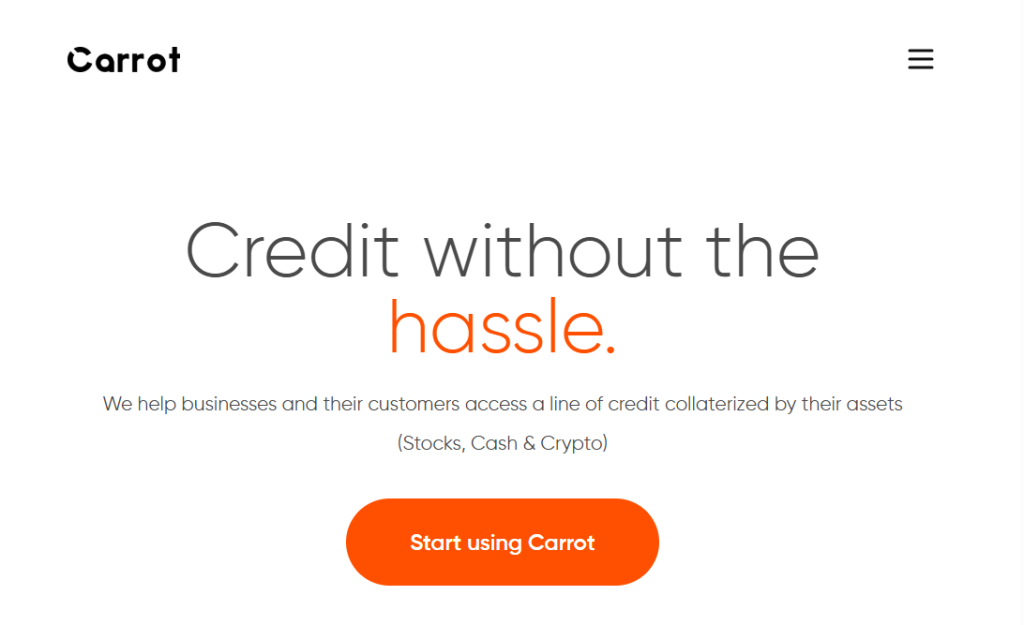Carrot Credit Raises $4.2M Seed Round to Bring Credit Access to Africa’s Underserved
July 7, 2025
byFenoms Start-Ups

Carrot Credit, a Nigeria-based fintech company, has raised $4.2 million in seed funding to power inclusive credit access across the African continent. The round was led by MaC Venture Capital, with participation from Partech Africa and Authentic Ventures.
Founded by Boluwatife Aiki-Raji, Carrot Credit is building a data-first credit infrastructure platform designed to serve the 350+ million Africans who are either credit invisible or poorly scored. Rather than replicate Western credit models, Carrot is creating a system that understands the nuanced financial behaviors and mobile-first economics of Africa’s underbanked population.
This funding marks a critical inflection point in Africa’s credit evolution - and positions Carrot as a category-defining leader in the space.
What Carrot Credit Does
Carrot Credit is not a lender. It is the intelligence layer that enables ethical, accurate credit decisioning for lenders, telcos, retailers, and even government benefit programs.
Key offerings include:
- AI-powered credit scoring models that draw on unconventional data - mobile usage, transaction patterns, informal employment signals, and more
- Credit risk APIs that financial institutions and consumer apps can integrate into onboarding or lending workflows
- Behavioral repayment analysis built for low-documentation environments
- A white-label loan engine that allows partners to launch credit products in weeks, not months
- Robust compliance and explainability layers for regulators and ecosystem trust
By moving beyond the traditional tri-bureau scoring logic and leveraging localized data science, Carrot Credit is giving lenders a truer picture of risk - and a larger customer base to serve.
The Real Credit Gap in Africa
Africa’s credit system is broken - not due to lack of demand, but due to a mismatch in how creditworthiness is defined.
Across Sub-Saharan Africa:
- Only 17% of adults have ever accessed formal credit (World Bank, 2023)
- Over 57% of the population is “credit invisible”, meaning they have no formal credit history
- Informal and semi-formal loans - such as from friends, community groups, or airtime credits - make up more than 65% of all borrowing
- More than 60% of mobile money users say they would take credit if they qualified - but they don’t, due to inadequate scoring methods (GSMA, 2022)
Legacy scoring systems like FICO or bureau-based models simply do not apply in environments where income is informal, assets are communal, and trust is local. That’s where Carrot Credit is changing the narrative - by designing models rooted in Africa’s economic, social, and digital context.
The Founder Insight That Changed Everything
The real breakthrough came not from better algorithms, but from a bold reframing: “What if we built credit scoring for communities, not just individuals?”
Carrot’s models incorporate social financial behaviors, such as:
- Cooperative savings group activity
- Informal lending history across community circles
- Airtime sharing patterns that signal reliability
- Digital remittance and gifting histories as proxies for liquidity
This unique approach allowed Carrot to uncover predictive indicators missed by traditional systems, and in doing so, unlock new customer segments for banks, fintechs, and microfinance institutions.
Here’s the founder-level insight that emerged from that reframing: In high-trust, low-documentation societies, relational data is credit data. And the platforms that know how to capture and score it ethically will define the next decade of financial inclusion.
For founders solving in opaque or underserved markets, the lesson is clear: Don’t retrofit old models - invent a new lens that’s grounded in the way people actually operate and exchange value.
Market Outlook: Africa’s Fintech Growth Isn’t Slowing Down
Carrot Credit enters a market that’s ripe for intelligent credit infrastructure, with a macro tailwind behind inclusive finance.
- According to BFA Global (2024), the demand for nano-credit, buy-now-pay-later, and informal working capital is growing at 28% YoY across East and West Africa
- The African fintech market is projected to grow from $12 billion in 2022 to $66 billion by 2030 (Statista, 2023)
- Digital lending startups raised $800M+ in VC funding in 2023 alone
- McKinsey predicts that credit solutions embedded in mobile ecosystems will drive more financial access than standalone fintechs by 2026
- Women and youth, two of the most credit-excluded groups, represent a $40B+ untapped lending market, especially in agriculture, micro-commerce, and education
The infrastructure layer needed to power this future is behavioral, modular, and explainable - exactly what Carrot Credit is building.
Where the $4.2M Will Go
With the new capital, Carrot Credit plans to:
- Expand into Kenya, Ghana, and Rwanda, where mobile money penetration is high
- Deepen its integration stack with telcos, neo-banks, and merchant POS systems
- Launch a developer sandbox for innovators to experiment with credit models
- Strengthen its data governance and bias mitigation frameworks
- Hire for roles in data science, compliance, and embedded finance partnerships
There are also plans to create custom credit models for sectors like agriculture, informal trade, and gig work - sectors where traditional credit scoring has failed.
The company’s long-term goal is not just to enable loans - it’s to build the infrastructure that lets anyone in Africa prove their creditworthiness, on their own terms.
The Bigger Mission
Carrot Credit’s mission is deceptively ambitious: a fairer financial system for the 1 billion+ people who’ve been left out of it.
By allowing African borrowers to be seen, understood, and funded based on who they are - not who the system expects them to be - Carrot is more than a credit engine. It’s a legitimization engine for the next wave of economic mobility.
In a continent where financial identity often begins and ends with a phone number, Carrot Credit wants to turn that phone into a passport to opportunity.









